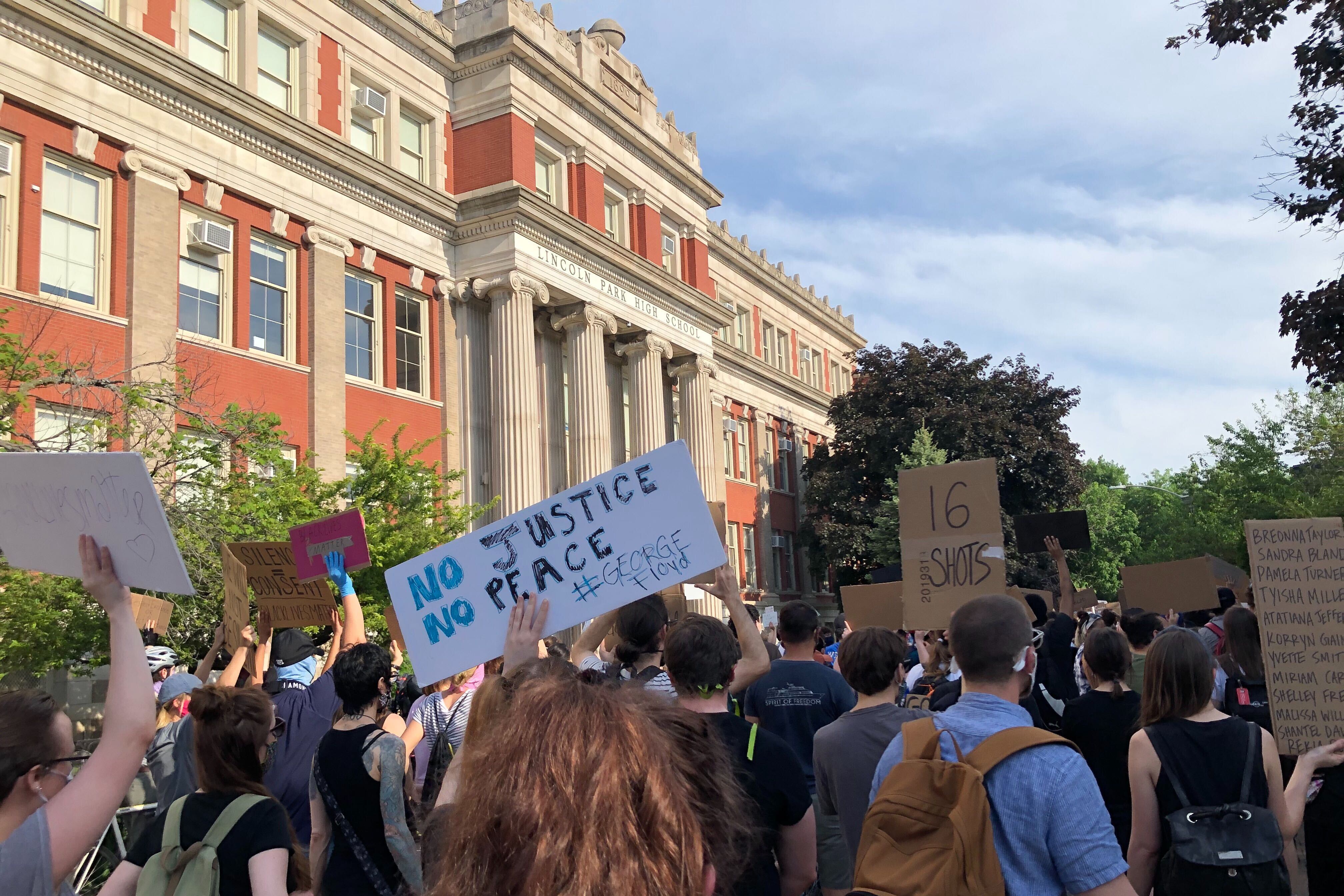At two marches Thursday evening, one starting at a well-resourced North Side school and the other at a district office on the South Side, young people in Chicago called for removing city police from schools and reducing police budgets.
The two marches, part of the nationwide protest sparked by the police killing of George Floyd in Minneapolis, are among the first rallies in Chicago called to bring out school communities to make demands directly connected to education issues.
“In my opinion, the presence of police in schools does more harm than it does good,” Shadi Naji, who graduated from Lincoln Park High School last year, said.
He wasn’t able to donate to the bail funds and other measures to support the protests and police victims, so he came out to march, he said.
“The presence of police,” he said, “targets students and brutalizes them within their own schools.”
Some of the marchers Thursday called for removing police from Chicago schools, a demand that has drawn more support since Minneapolis schools cut ties with its police department earlier this week. Others pointed to the underfunding of schools, and said that money now spent on police would be better spent on education.
In a statement, Chicago Public Schools said that schools could remove their police officers through their Local School Councils, which last year were given the authority to vote on keeping officers in a school. The district also said the police department would create a school police working group to incorporate statements from the public collected through recent public comment.
“Chicago Public Schools values the feedback we are receiving from students, families, and community members, and we remain committed to continued engagement and dialog about the role of School Resource Officers in our schools,” chief security officer Jadine Chou said in a statement, referring to the sworn police officers on campus.
More than 1,000 people attended the North Side rally, which was organized by former Chicago Public School students. It started at Lincoln Park High School. Supporters then marched to a police academy and then the juvenile jail.
South Side marchers, organized in part by students affiliated with the youth group Good Kids Mad City, began at a Chicago Public Schools district office in Bronzeville and marched to police headquarters in Bronzeville. Social media reports said around 300 young people attended.
One parent of three children at Chicago Public Schools, who did not want to give her name for fear of retribution, said she pulled her autistic son out of a district elementary school after the school called police on him during an incident.
”Cops should not be called at all to schools,” she said. “With a child with a disability, you don’t know what could happen in that conflict. I immediately took him out of that school.”
Along with people new to marching, the North Side rally attracted seasoned activists. Rousemary Vega, who was active in the protests against Chicago’s mass school closings in 2013, was marching with her two daughters.
“Where the problems for the black and brown children start is at our defunded public schools,” Vega said, pointing to a lack of social support like counselors at some schools, while the district has paid for the police contract.
“We have more cops in our public schools than we do counselors,” she said.
Vega’s third daughter was one of the youth organizers of the North Side march.
“When you raise your kids to do better and to know better,” she said, “you expect nothing less.”





